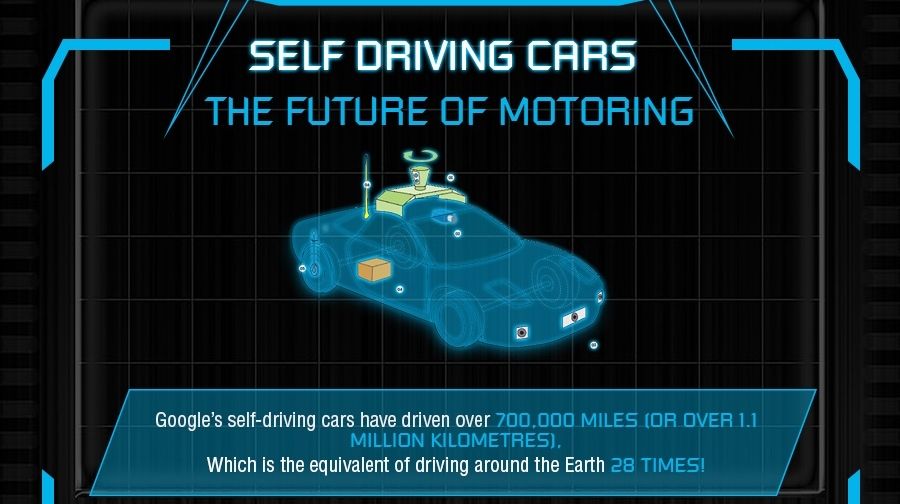Ready or not, autonomous vehicles, or self-driving cars, are coming. Development doesn’t show any sign of abating, and while many cherish their time behind the wheel (TopSpeed readers most definitely included), the potential benefits of this technology are just too good to ignore.
Southside Motor Factors knows this, and has offered us a nice little infographic listing the reasons why self-driving cars are the future of motoring.
After a breakdown of the equipment behind the technology,->ke1701 we get statistics on road safety and the economics of collisions, two of the main justifications for the implementation of self-driving cars. This is followed by predictions about which age groups will become the first “non-driving drivers” and a timeline for adoption.
It’s good information, with solid facts and reasonable forecasts for the future. However, there is one glaring omission – the disadvantages. I’m not trying to be a downer, but it’s important to go into this with both eyes open. As this tech is brought to market, how will we navigate the ethical minefield of both human and AI drivers sharing the road? How will the unemployment of cab drivers, truckers, and similar professions affect the economy? How likely is it your car could get hacked? Will the legions of autonomous vehicles unite to launch an insurrection against humanity?
These are all important questions (well, some of them are), and while there are plenty of potential upsides, the reality of self-driving cars has yet to be proven.
Click past the jump to read more about the "Self Driving Cars – The Future of Motoring"
Why it matters
It’s the opinion of this humble keyboard monkey that when it comes to coverage of self-driving cars, it’s either a whole lot of hype or blatant fear-mongering. Actual pragmatic discussions are frequently lost in the swirl of attention-grabbing headlines.
But what most interests me is the way this technology will change the way we relate to cars. Some predict a higher level of communication. For example, the Rinspeed Budii and Toyota FV2 are both concepts that envisage a vehicle's AI that learns from its pilot, making suggestions and calculating things like the driver's mood based on past interactions. (Does that include road rage, I wonder?)
It’s an interesting idea, but I don’t think I’m alone when I say that the most important feature of any car should be the option for manual control. “Going for a drive” remains one of the most liberating activities anyone can undertake, and unsurprisingly, there’s some apprehension that self-driving cars could hinder this feeling of autonomy.
However, I’m here to tell you not to worry. If you’re the kind of person that finds salvation in a deserted stretch of tarmac or redemption in the hum of an exhaust note, you are most certainly not alone. Even if this technology is the future of motoring, anyone who fancies himself a driver will have that option in perpetuity. I’m confident of this because I’ve seen the passion of auto enthusiasts, and I know the power they hold when united.
So don’t fret! Odds are, self-driving cars will help divide those who enjoy the act of piloting a vehicle and those who just want to be transported, and if that means human drivers are relegated to B roads, then it’s all for the better. Freedom found.


